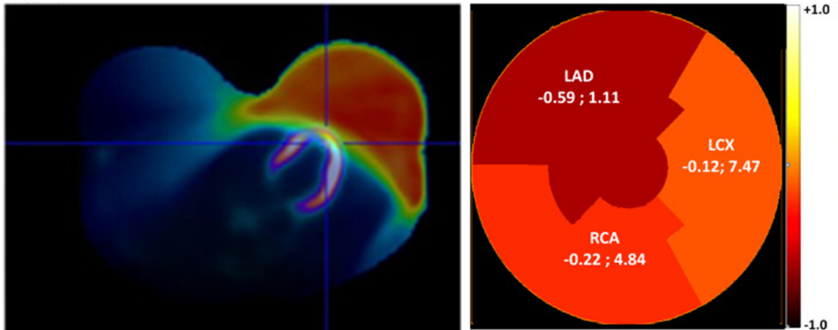In breast cancer radiotherapy, the mean heart dose is currently 1–5 Gy. Exposures at these levels can cause ischemic heart disease that worsens within five years post-radiation, then continues into the third decade. Determining radiation-induced cardiac toxicity soon after radiotherapy allows for early assessment and intervention of heart disease. Currently, detecting changes in myocardial functionality post-chest-wall irradiation—for example, myocardial perfusion imaging (MPI)—takes years post-radiotherapy. Positron emission tomography (PET)-measured myocardial flow reserve (MFR) predicts cardiovascular events independently of relative regional perfusion defects, thereby improving risk stratification in patients assessed for myocardial ischemia. Sadek Nehmeh showed that MFR changes, which can be detected as early as one year post-radiation, correlate with the heart’s radiation dose.
Collaborators


